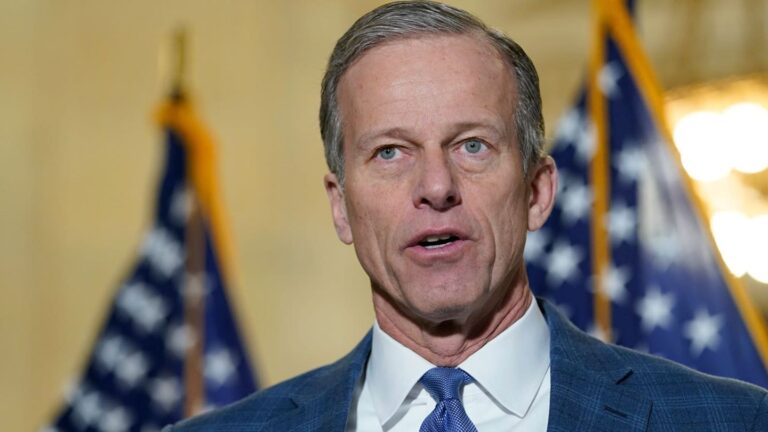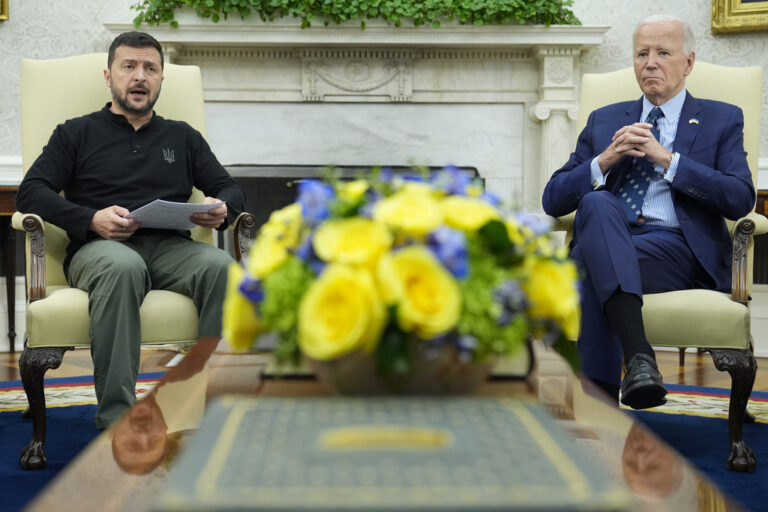 One is a businesswoman and an MBA graduate. Another is a corporate vice president. The third is a registered nurse.
One is a businesswoman and an MBA graduate. Another is a corporate vice president. The third is a registered nurse.
These three mothers — all of them educated, middle-class professionals — are among the vaccine skeptics who have been widely ridiculed since more than 100 people fell ill in a measles outbreak traced to Disneyland. Critics question their intelligence, their parenting, even their sanity. Some have been called criminals for foregoing shots for their children that are overwhelmingly shown to be safe and effective.
“Contrary to the common sentiment, we are not anti-science,” said Michelle Moore, a businesswoman who lives in the affluent Portland suburb of Lake Oswego with her 2½-year-old twin girls. “I’m not opposed to medicine, and I think vaccines have a place. We think it’s a medical choice, and it should be researched carefully.”
The backlash, much of it from people who fear unvaccinated children could infect their own kids, has been so severe that dozens of anti-vaccine parents contacted by The Associated Press were afraid to speak out. But a handful of mothers agreed to discuss their thinking.
Moore, an MBA graduate who runs an agriculture-related business, traces her feelings to the time she took Lariam, a supposedly safe anti-malaria medication. Instead, she said, the drug saddled her with multiple health complications. She questions whether the government knew about the risks at the time. Health officials now acknowledge Lariam can cause severe side effects, some of which can be permanent.
That experience broke Moore’s trust in the medical establishment and launched her on years of research into how vaccines can affect people’s health. When she got pregnant, Moore and her husband delayed immunization for Sierra and Savannah.
“It was not an easy decision,” she said. “The thought of something happening to them because we chose not to vaccinate is terrifying. But I have so many questions, and I do think it’s the right decision for our family.”
Nancy Babcock of Spokane, Washington, says people who share her opinions “are being vilified and ostracized.” Babcock, a vice president at a bank, told her daughter about her doubts. Then her daughter and her husband looked into the issue, and they decided not to immunize their two children.
“In a community with many young people, those who don’t vaccinate are feeling a lot of pressure,” she said.
Nationwide, parents who seek an exemption from vaccine requirements are still in a tiny minority. The median total exemption rate for kindergartners during the 2013-14 school year was just 1.8 percent, according to the Centers for Disease Control and Prevention. But some individual schools or communities have higher exemption rates, at times approaching 60 percent or more.
The parents who spoke to AP recounted spending hundreds of hours reviewing medical studies, books and news stories and networking on social media. They cited cases of children who were supposedly hurt by vaccines and the existence of a government-run vaccine injury-compensation program. And they worried about the oversight of pharmaceutical companies that reap profits from vaccines and are shielded from liability when a vaccine causes harm.
Moore said she read a 1998 study published in The Lancet journal by Dr. Andrew Wakefield, who raised the possibility of a link between the measles-mumps-rubella vaccine, bowel disease and autism. She said she knows the study was later discredited and retracted. She believes the research was inconclusive.
Moore concedes that the vast majority of studies show vaccines are safe, but she says some research points to inconsistencies, unknowns or negative effects that deserve further investigation.
And while autism is still a concern, Moore and others also worry about how exposure to chemicals, bad nutrition and stress can affect genes and health. They say large doses of synthetic additives found in vaccines, including aluminum and mercury, can harm the immune and digestive systems and brain.
The CDC has phased out a mercury-containing preservative in vaccines as a precautionary measure, and the agency says vaccines containing aluminum pose extremely low risk to infants.
These parents say they should be able to decide whether their child undergoes a medical procedure — a decision, they say, that goes to the core of what it means to have freedom of choice.
“I have the right to decide what to put into my child’s body,” said Heather Dillard, a mom in Springfield, Missouri, who is also a registered nurse. “Nobody has the right to put toxic chemicals into my son’s bloodstream. That’s taking my rights away, and it’s very scary to me.”
Dillard said she decided against vaccinating because her first child was born a preemie and has autism. Dillard does not believe vaccines caused the autism, but the disease led her to do a lot of research about health. She says she now chooses to build her son’s immunity naturally, through diet, while avoiding shots or other medication.
Moore said she does worry about affecting children who are immune-compromised and cannot be vaccinated. Before visiting friends with babies or young children, she said, she always informs them her twins are not vaccinated “so they have the power to make a choice.” She also keeps the girls home at any sign of sickness.
If Oregon were to take away the right to a vaccine exemption, Moore said, she would likely home-school her twins. She’s keeping an open mind about vaccinating as her children get older, but hopes more studies on the long-term effects of vaccines can help dispel her doubts.
“I worry about living in a society that’s progressively more intolerant toward any dissent,” Moore said. “All scientific advances have come from questioning the status quo.”
(AP)











10 Responses
Ein safek (especially one simply based on “who knows what problems are in there”which can be
said about so many things we do without a second thought)motzee miydai vadai.Lots of talk without one solid fact against the specific one given to kids. Since vaccinations (whose source is in the Gemara)life expectancy and it’s quality have improved tremendously. Obviously not only because of vaccinations, but they sure have helped.
When you as an “anti vaccine mom” are deciding whether to vaccinate, are are you being selfish by “using” the vaccinated population to keep your kids from caching any given illness (if you were raising your child 50+ years ago if you had the choice to vaccine would you make the same decision)? Why don’t you balance the chance of caching the illness with the chance of any of the projected negative side affects to any given vaccine?
I dont like the term being used “vaccine debate” in truth its not a debate. While the normal pro vaccine people would love to debate with facts and figures the anti’s dont say anything rational, basically its we are not doing it and now lets make up a lot of garbage to make us look intelligent, how can one debate with such a person. The anti’s have no argument i challenge any anti to come on here and support their argument with solid facts like we have on our side
hose who don’t vaccinate don’t realize that they play with fire! They are putting their children at a much greater risk.
My parents vaccinated us but were not careful in making sure we got all our vaccines (partially because of all the anti vax claims). When I was 20 years old I contracted Mumps which caused orchitis. I now suffer from severe male factor infertility directly caused by the mumps and even with many treatments and IVF etc. we still have not had success in having children.
Aside from that how can someone look at a disease that is causing 150 thousand deaths a year that has a vaccine that can nearly prevent all those deaths (97% effective) and say that because of a few cases of complications its not worth it. The benefits of saving 150 thousand lives a year far outweigh the possible risks! even according to the anti-vaxers there is definitely not a 150 thousand people dying a year from vaccines.
It is like saying we should not have seatbelts or airbags in cars because sometimes they can cause injuries and deaths etc. No sane person would say that because the amount of people saved by these devices far outweigh the risks
Freedom isn’t perfect, but it’s better than the alternatives. We need to allow parents to make the final decision. The government does not have a perfect record making decisions for us.
#4, do you believe in Hashem? That He runs the world? That your situation was tailor-made for you, for what you have to do in this world? On the one hand, when one vaccinates their children (and my kids are only partially vaccinated too! Bless my youngest’s heart that she listened to both sides and made a quite rational decision not to put vaccines into her newborn; she’ll decide whether to start some vaccinations later, when his immune system is stronger), most people notice that their kid has a fever and listlessness. These are common effects – even the nurses/doctors who administer the vaccines will tell you this. But to read the sickening stories – real life stories – of mothers who vaccinated their child and the next day the child didn’t wake up, or showed behavior quite contrary to what they did before (and being labeled autistic or something else from that point on), it’s kinda hard not to put one and one together.
Just as many people don’t accept the opinion of “alternative” medical practitioners and only follow the Western model, there will be large numbers of people who accept what the Western doctors say about vaccines, which is heavily influenced by BigPharma and the unwillingness (or lack of time) to check both sides out.
When we buy appliances and houses we put much more effort into checking what’s good, what’s safe, how things work than we are in checking our medical recommendations. Isn’t that plain dumb?
There are safer ways to vaccinate (like my “alternative” medical practitioner husband says to wait until age 5 if you’re going to vaccinate). Take Vitamin C the day before, the day of, and the day after to mitigate any problems. There ARE ways to boost immunity to these illnesses, but remember, Hashem gave us illness as a siman of what we need to do in our avodas Hashem. Maybe if we would work on that more than lambasting people for choosing to take responsibility for their child’s health, we would have a different world. Maybe this is what is holding Mashiach from coming? Hmmm.
I encourage those of you who KNOW (ha!) that vaccines are safe to read the package insert that comes with each one. It happens that the medical establishment knows that autism is a possible outcome. It says so in the package inserts. Which come from the pharmaceutical companies (hey, Merck makes very big money on these vaccines and have a vested interest in hiding the reality.)
The only thing we can know is that Hashem runs the world and if we are intended to have a disease, He will make it happen EVEN IF we had the vaccine.
As believing Yidden, we are obligated to remember this. Do you?
“As it does every winter, the Israeli Health Ministry is campaigning heavily to persuade the public to get vaccinated against the flu. Nearly one and a half million people have taken the shot this season, the ministry says. Yet resistance is rearing its head – among doctors and nurses, of all people.
The underlying irony is that while an overwhelming majority of doctors tout the benefits of inoculation for the general public, only 35 percent of medical practitioners get immunized themselves, the Health Ministry admits.
At least they’re in good company – studies done in Europe and the United States show similar scorn for the shot among doctors and nurses, ascribed to a combination of “personal attitude” and misinformation. At least in the United States, the situation is changing: now due to regulatory changes, somewhere between 80 to 90 percent of healthcare workers get the shot, says Dr. Arnold Monto, professor of epidemiology at the University of Michigan and a global influenza expert.
Israel’s “vaccine refuseniks” cite a twofold rationale: they don’t believe they’re likely to get sick, and they don’t like being told what to do.
“Personally, why don’t I take the shot? Because it’s my version of anarchism,” says one physician in Jerusalem, who spoke on the condition of anonymity. The shot makes him feel sick for days, he adds: Why be sick now rather than take the chance of being sick a few days, later?
Maybe because when it gets bad, influenza can kill. The Jerusalem physician however shrugs that he doesn’t belong to a high-risk group, and, he points out, he encourages his family to get the shot……….”
(Though I personally vaccinate,) This totalitarian attitude of enforcing vaccination is concerning
When Rand paul ,a doctor, gets up and challenges collective vaccination even though it was bound to get him into political hot water-ought to say something
Yomama- Do you think that perhaps your husband is a little Noigah B’dovor? You’re like the pot calling the kettle black! Alternative medical people don’t make any profit, so you have the right to call out Pharm corps???
#6 thanks for proving my point you are the quintessential anti vax kook zero argument just a bunch of feel good nothing. listen lady leave all the feeling out of it and give us some facts. also i have a question for you are your children stopping to give their kids a bris hey kids have died from that too.